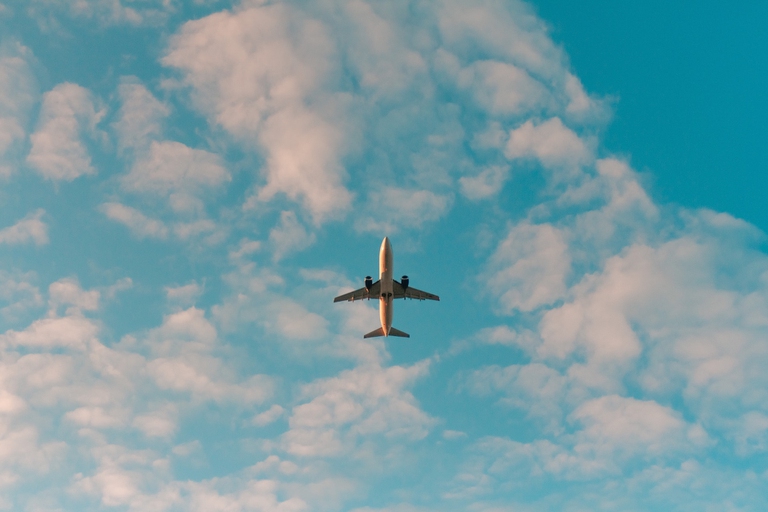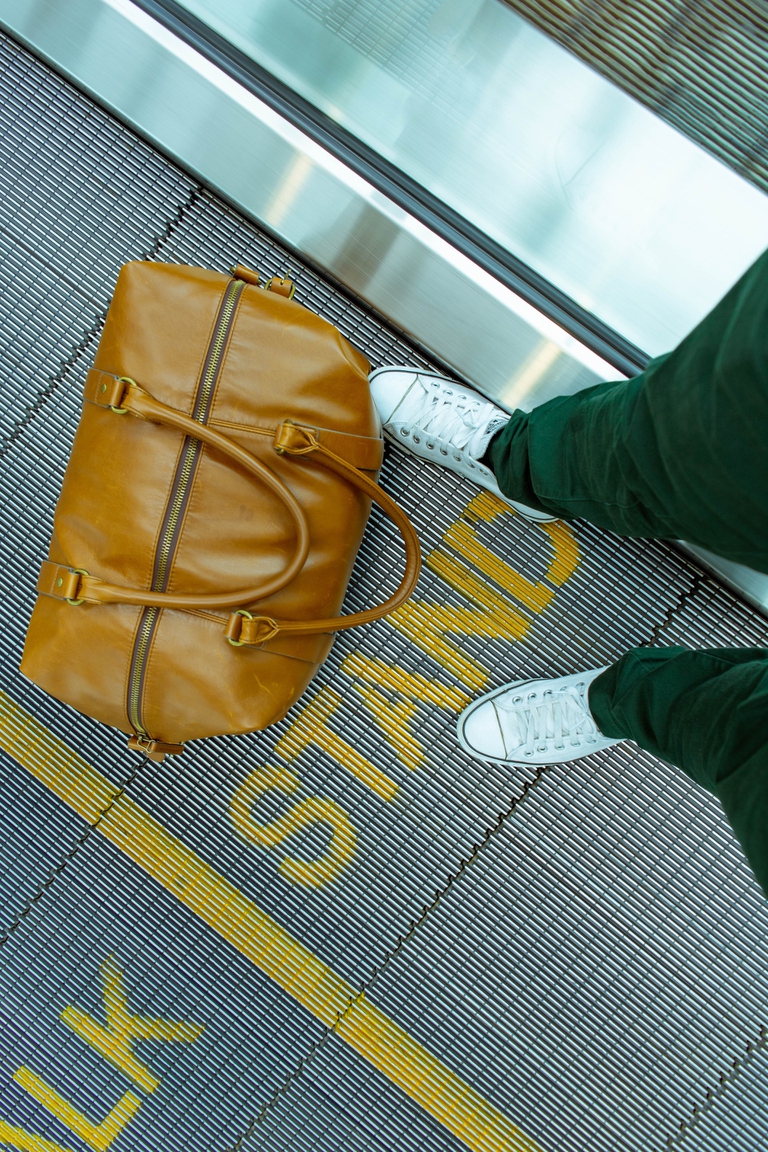https://www.lifegate.it/per-abbattere-le-emissioni-bisognerebbe-viaggiare-senza-valigie
- |
- Every 10 kilograms of luggage less on each flight corresponds to approximately 7.5 kilograms saved in emissions:the quantity of fuel consumed by aircraft also depends on the weight of the aircraft.
- If we consider that the International Civil Aviation Organization (ICAO) of the United Nations predicts that emissions from air transport are destined to triple by 2050, reducing at least those relating to luggage would be a significant saving.
- For this reason, various initiatives are emerging around the world that allow you to rent clothes once at your destination and thus travel only with hand luggage.
Traveling by plane pollutes.Traveling by plane taking the entire wardrobe with him it pollutes even more.In an ideal world we should give up air travel, but the reality is that today no one wants, or can, to do so.Wanting to lend a hand to the planet, after all, does not mean having to completely eliminate the lifestyle we have, at least for now, but trying to be as conscious as possible on what our actions entail in terms of environmental costs.For example:leaving for a holiday or a trip carrying too much or too heavy luggage with you it increases the fuel needed to cover that route, with a consequent increase in emissions.There are those who are naturally inclined to be essential when traveling and those who, on holiday, need to bring with them the widest range of choices possible, not only:there are some types of trips or holidays, such as those in the snow or in places where the climatic conditions are harsh, which necessarily require you to have very heavy or heavy clothes with you suitable equipment.Apps and initiatives are emerging around the world to overcome this problem by offering the rental of everything you need.

Japan Airlines cuts your suitcases against emissions and lets you find your clothes in the hotel
Is called Any Wear Anywhere and it is the initiative launched in August by the Japanese national airline to cut costs CO2 emissions related to the transport of suitcases.It may seem like a small thing, but The weight of the aircraft is one of the variables that determine the amount of fuel needed to cover a certain route.Most of the fuel consumed by an airliner occurs at departure - almost a third of the total - but the total fuel consumption, and therefore the emission of Co2, also varies depending on the weather conditions and the weight of the aircraft, an aspect which is determined by the quantity of both passengers and luggage.In 2019 the Guardian conducted research according to which, a return flight from Rome to London, emits 234 kg of CO2, while to go from London to New York, i kilos of carbon dioxide emitted rise to 986, but things are destined to get worse.
THE'International Civil Aviation Organization (ICAO) of the United Nations foresees that emissions from aviation are destined to triple by 2050, date in which they could represent the 25 percent of the global CO2 emissions budget.Therefore, essential baggage can have a significant impact on the total number of emissions.In fact, according to what was reported by CNN in a report, it is estimated that every 10 kilograms saved in luggage is equivalent to approximately 7.5 kilograms saved in emissions.An energy bonus equal to what it would take to run a hairdryer for 10 minutes a day for 78 days.In short, if we all left for holidays with only hand luggage, the savings in terms of CO2 emissions would be significant.
Any Wear, Anywhere was conceived precisely with this in mind:make sure that Passengers going to Japan can bring a minimum amount of baggage with them, which means that Japan Airlines is able to better measure the weight of the plane in advance and then calculate the necessary fuel accordingly.The service was active in August for flights to Tokyo, Osaka or Fukuoka where, upon their arrival, travelers had the possibility of receiving clothes of different sizes and occasions of use.There are still no reports on the success or otherwise of the initiative, but Japan Airlines was not the only company to have taken this path to reduce emissions when traveling.
Gibbon, Trvl Porter and SkiGala when the rental is applied to the trip
The Dutch company had the same idea Gibbon and the American Trvl Porter:two startups that essentially they rent clothes to people on holiday, in the case of Travel a Porter complete with styling service personalized included.They work essentially the same way, but Trvl Porter is currently only active in the United States:you select the items you need, decide how long you want to keep them and finally communicate where they should be sent. SkiGala instead apply the same concept to winter sports:active in the resorts of Swiss, Austria And France, in addition to classic equipment such as skis, snowboards, helmets and boots, it also rents technical clothing:from the jacket, to the mid layer, to the gloves up to the mask.

Traveling without heavy luggage is certainly a convenience and the emissions savings are tangible, but the same applies problems that exist for rental clothes tout court and which mainly concern shipments and the laundry process.Traveling clothes, even if not by plane, still has a high environmental cost and requires the use of packaging which, if it is not reusable, turns into waste.The same goes for i washes and the sanitation, necessary after each use:if you wash too often textile fibers deteriorate more quickly, shortening the life of the garments.Not only that:some types of cleaning, such as dry cleaning, are not the best for the environment, nor are the rather aggressive solvents that are used to neutralize odors, such as those of sweat or cigarettes.It is therefore important, if you want to consider this alternative to travel lighter, to evaluate the company with which you rent, find out about the type of courier used, on packaging and on laundry process.
Do-it-yourself solutions
There is always the option essentiality tout court:if the fact of having many identical souvenir photos in which you are always wearing more or less the same things does not represent a problem, the most sustainable solution of all is to bring a few things with you and then wash them during the trip. In this way it is also possible to keep the laundry process under control:whether you wash your clothes yourself or choose an on-site laundry.

Free trolley destinations
If in the collective imagination the backpacker is more eco-friendly, it is because in fact this is the case.The hard suitcases take up more space and are heavier:this is why they are banned by some airlines, such as those that serve some locations in Kenya, Tanzania or Uganda and which have fleets of very small planes where there is not enough space for rigid suitcases, which they are bulkier and heavier than backpacks or soft duffers.Not only that:the mayor of Dubrovnik is considering banning trolleys in the city center to alleviate the noise pollution that torments residents from the wheels of hard suitcases on the cobblestones.
